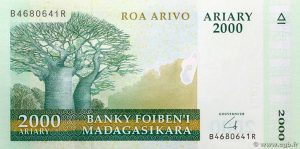Washington, DC – July 3, 2025 – The Executive Board of the International Monetary Fund (IMF) has completed the second reviews under Madagascar’s 36-month Extended Credit Facility (ECF) and Resilience and Sustainability Facility (RSF) arrangements, unlocking an immediate disbursement of approximately US$107 million.

IMF completes second reviews of Madagascar’s ECF and RSF programs, unlocking $107M in funding.
Key reforms:
✅ JIRAMA recovery plan
✅ Automatic fuel price adjustment
✅ New forest carbon framework
The Board’s approval enables the disbursement of SDR 36.66 million (about US$50 million) under the ECF and SDR 40.732 million (about US$56 million) under the RSF.
The IMF commended Madagascar’s satisfactory performance, highlighting progress in key reforms, including:
-
Adoption of a recovery plan for the public utilities company JIRAMA, aimed at improving electricity supply and reducing fiscal pressures.
-
Continued rollout of the automatic fuel price adjustment mechanism, supporting more efficient public spending.
-
Implementation of a new forest carbon framework to engage the private sector in reforestation.
-
Operationalization of the National Contingency Fund for disaster risk management.
However, the country faces significant challenges:
-
Severe weather-related shocks.
-
A decline in official development assistance, equivalent to around 1% of GDP.
-
A U.S. tariff hike on critical exports, including textiles and vanilla.
These setbacks are expected to weigh on growth, with 2025 GDP forecast to expand by 4%, slightly below prior projections. The current account deficit is projected to widen to 6.1% of GDP, reflecting weaker export performance.
At the conclusion of the discussion, Nigel Clarke, Deputy Managing Director and Acting Chair, emphasized:
“The recent adoption of JIRAMA’s recovery plan is a step in the right direction. Swift implementation will help address electricity disruptions while limiting budget pressures. Maintaining a flexible exchange rate will also help absorb shocks.”
He urged authorities to:
-
Strengthen domestic revenue mobilization.
-
Enhance public financial management.
-
Advance preparations for the 2026 budget, anchored in a clear medium-term fiscal strategy.
-
Avoid loosening monetary policy prematurely, as inflation remains elevated.
-
Accelerate implementation of the 2025–2030 anti-corruption strategy and recommendations from the IMF Governance Diagnostic Assessment.
The IMF underscored that continued commitment to reforms under the RSF will bolster climate adaptation efforts, complementing the ECF’s focus on macroeconomic stability and development.
Selected Economic Indicators (Percent Change Unless Otherwise Noted):
| Indicator | 2024 Estimate | 2025 Projection |
|---|---|---|
| GDP Growth | 4.2% | 4.0% |
| Inflation (end of period) | 8.6% | 8.3% |
| Current Account Deficit (% of GDP) | -5.4% | -6.1% |
| Public Debt (% of GDP) | 50.3% | 50.9% |
| Gross Official Reserves (SDR millions) | 2,189 | 2,297 |
| GDP per Capita (US$) | $569 | $596 |




